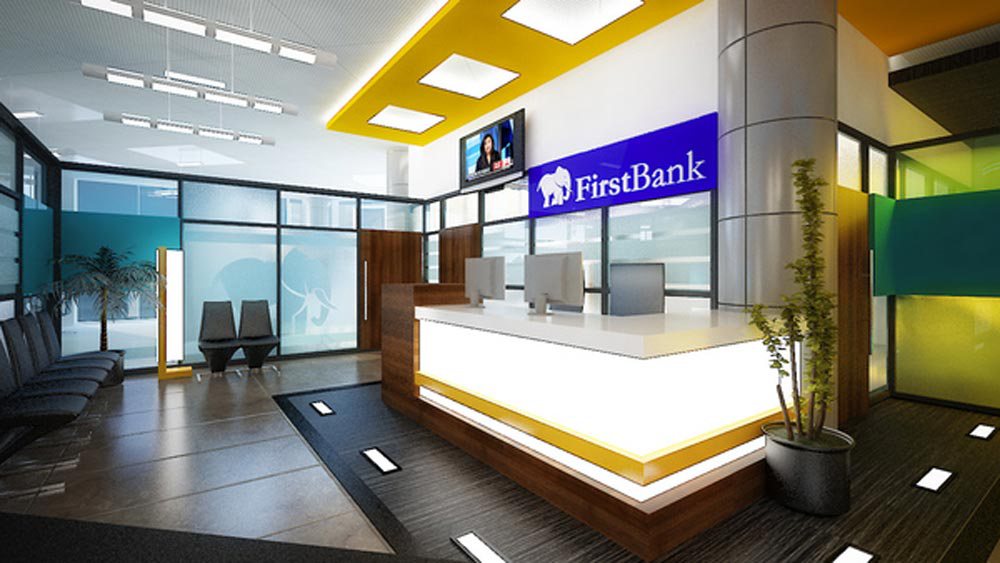HOW TO APPLY FOR BANK LOANS FOR YOUR SMEs AND STARTUPS IN NIGERIA.
 HOW TO APPLY FOR BANK LOANS FOR YOUR SMEs AND STARTUPS IN NIGERIA.
HOW TO APPLY FOR BANK LOANS FOR YOUR SMEs AND STARTUPS IN NIGERIA.
Most startups and SMEs in Nigeria usually encounter several challenges in establishing their businesses, amongst them, accessing funds top the list. In light of recent economic troubles, obtaining funds to establish and support a business is usually quite hard to do. Many individuals and businesses have great ideas for new and lucrative business ideas, but unfortunately most of these ideas never transform to reality, majorly due to inability to raise funds or access bank loans, this is because banks are desperately trying to preserve their initial capital at the very worst and do not subscribe to the idea of pouring their money down the drain. Nevertheless, some Nigerian banks are beginning to awaken to the fact that there are actually entrepreneurs out there with innovative ideas who only just need money to acquire their business dreams. Thankfully recently, some banks have started giving out loans without any request for collateral. So what are the steps to take when applying for a bank loan? Here they are:
1. IS IT NECESSARY? Before you go ahead to apply for a bank loan, you need to first determine whether you really need a bank loan. There are a lot of people who make mistakes with bank loans. Am guessing you know that bank loans are not the only way you can raise the capital you need to start and grow your business. You could access funding through soliciting help from your family, friends, and colleagues. This latter group is even better because they will wait patiently for your business to start generating huge profits before they get their returns on investment, on the other hand, bank loans and interests are usually paid as soon as they are due, whether your business has started yielding profits or not. And also in most cases the interest rates are pretty high and can easily soak up all the profits your small business is making. That is why it is critical to understand the possible consequences of getting a bank loan. So first you need to understand all your chances before reaching for a bank loan, and then think carefully before answering these question; ‘Are you sure you really need a bank loan?’ ‘What are my options?’ ‘Are there other alternatives to raising the capital?’ If you’ve carefully weighed and analysed these questions and your answer is still a ‘yes’, then you’re most likely truly in need of a bank loan to launch your startup.
Just follow this steps:
2. WHAT TYPE OF LOAN CAN YOU ACCESS? This post was published by GTBank on July 17, 2017, ‘ Basically there are two main types of small business loans: overdrafts and term loans. An overdraft allows you to withdraw money from your bank account that you currently have. A perfect example is the GTSalary Advance platform. This scheme dispenses loans ( of not more than 50% of their monthly salary) to working class individuals with short – term capital needs. Overdrafts are usually flexible with a pay – as – you – go interest rate. On the other hand, a term loan starts to accrue interest from the moment you receive it, whether you use it or not. It is a high risk loan and is best for long term projects.’
3. KNOW YOUR PROSPECTS: Next, you need to go ahead and investigate your prospective investors to find out their unique loan requirements. Your business needs to be in line with the interests and goals of the financial investor you plan to approach. Some banks usually invest only in large scale businesses, and may therefore not be interested in funding a small business. So it’s really essential to know your prospective investor thoroughly before you present your business to them for funding. Also, check that your startup meets all the necessary requirements by the bank (because all will be critical to getting you the loan)
4. ARE YOU CREDIT WORTHY? Everyone will only be interested in investing in business that have good credit history; they want to see your financial management skills. If you have taken out a loan in the past and paid it back with all the interest and with no delays, it often signals good behaviour and credit worthiness to banks. Otherwise, if you have a poor credit history, the banks may insist on collateral or other forms of securing the loan. You will need to present a clear and genuine financial records to stand a better chance of accessing the loan. You should also add a purchase order ( if you’ve got any) as proof that people are interested in patronizing your business. An example of this is Anna Phosa, the South African entrepreneur who sells pigs. She was able to receive a 2.5 million dollar loan from South Africa’s ABSA Bank to enlarge her piggery business. The loan was possible because Anna had secured a contract to supply a hundred pigs a week to pick n’ pay, one of South Africa’s largest supermarket chains. The availability of the contract and a credible large company behind her made her more credit worthy and low risk, hence she was able to easily access the loan.
 HOW TO APPLY FOR BANK LOANS FOR YOUR SMEs AND STARTUPS IN NIGERIA.
HOW TO APPLY FOR BANK LOANS FOR YOUR SMEs AND STARTUPS IN NIGERIA.
5. PRESENT A BUSINESS PLAN. Your business idea needs to be properly presented to investors on paper. This is done by preparing a detailed business plan specifically directed to its target audience:’ investors’. Your business idea is as good as it looks on paper, so every detail counts. A business plan is a written document which contains your financial statements and projections, the company description, your marketing strategies, and should show where you see the business in a three to five year time frame. The business plan is required to be convincing, with facts and figures to back up your presentations. Make it simple, understandable and realistic. Preparing a detailed business plan is probably the most important in loan application. In order to access any funding whatsoever for your business, you will need to have a detailed business plan in place. It is required in addition to the loan application, by the financial institution. You will also need to include an analysis of the market your business will serve as well as a statement of your own experience in the business. Your business plan should clearly answer questions like;
– What is your business about?
– Is there a market for it?
– What is your unique selling point and marketing plan?
– What background and experience do you have to make the business work?
– What will the loan be used for?
Find out how to write a perfect business plan or preferably seek for professional assistance from known experts and business consultants like Adedayo Adetiloye who writes professional business plans for aspiring entrepreneurs. You can check the website, dayoadetiloye.com
6. WRITING THE LOAN APPLICATION: The next step is writing the loan application. Note that this is a formal document, so observe every necessary protocol. Clearly state the reason and amount of the business loan, so you should take out time (especially as you’re a startup) to be able to articulate why you need the business loan and how much. Often, businesses may not be able to address the situation of how much they really need for the business until they prepare their financial statements as part of their business plan. Next you should include accurate and genuine financial records and statements, followed by stating your assets and pledging your collateral. Generally you should share your business experience and expectations in the loan application, for assessment by the financial institution.
7. YOUR COLLATERAL: If you are applying for a business loan for a startup business in Nigeria, the only way your loan will be approved by the bank is if you pledge your personal wealth as collateral. A collateral is usually any item of value such as real estate( buildings and la d), cars, expensive jewelry and shares that are quoted in the stock market. The collateral you pledge remains yours until you are able to repay the loan. Financial institutions always insist that the value of the collateral you pledge is the same value( or more) of the amount you are applying for, which is usually a major challenge for most small business owners, but can be handled if you are credit worthy. Nonetheless, there are certain banks in Nigeria which offer loans without collateral, here they are:
Culled from Nigerian Bulletin, Jan 26,2015
First Bank of Nigeria PLC. First Bank of Nigeria has made plans to provide non – collateral loans for small and medium enterprises as part of the bank’s initiative to power growth in the SME sub- sector. The loans are offered to SMEs in different sectors of the economy; hence there are no favourites. The great thing about First Bank’s unsecured loans is that it is destined to be easily accessible to entrepreneurs irrespective of the type or size of the business
Diamond Bank PLC. Diamond Bank PLC offers entrepreneurs an opportunity to obtain loans without securing the loan against collateral. The non- collateral loans are designed to stimulate growth for micro, small and medium enterprises ( MSME). Diamond Bank SMEs loans can be accessed in the form of; Revolving credit, installment loan, local purchase order( LPO) finance and a contract finance. However, you’ll need to open a corporate bank account with Diamond Bank before you can apply for its SME loans.
Stanbic IBTC Bank. Stanbic IBTC Bank offers Nigerian entrepreneurs a great opportunity to obtain business loans without providing collateral. The loans are designed to help SMEs buy assets, but the asset only becomes yours when you make the last payment on the loan.
Before you approach any of the listed banks here for a non – collateral loan, it is important that you first open, run and maintain an account( corporate preferred) for a period of three to six months. You also need to have a sound business plan in place and a solid repayment plan for the loan.
7. PROVIDE A GUARANTOR: Finally you will need to back up your application with a guarantor. Your guarantor will be held liable by the bank in a case where you do not meet with the payment plans. Providing a guarantor serves to assure the bank that the risk is worth a try and will increase your chances of getting a loan.
Related